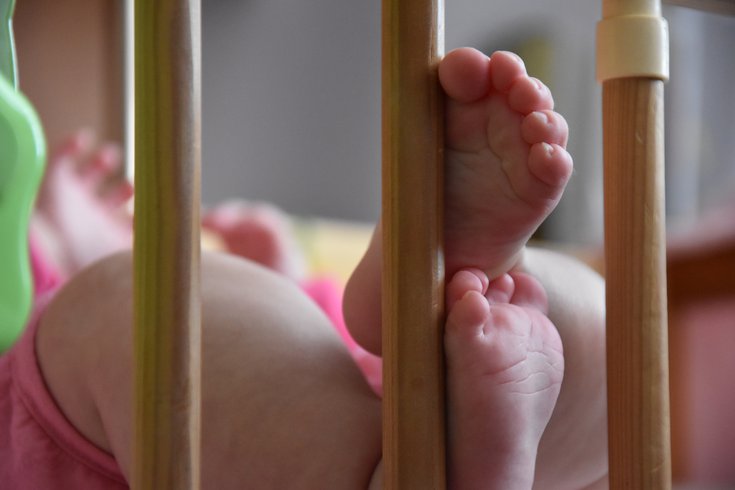
May 25, 2023
 Source/Image licensed from Ingram Image
Source/Image licensed from Ingram Image
New research into the cause of sudden infant death syndrome found that babies that die of SIDS are more likely to have an altered version of a brain receptor that typically triggers infants to gasp for air when they fail to get enough oxygen while sleeping.
Some 3,400 babies die every year in the United States of sudden infant death syndrome – the unexplained death of a seemingly health baby before its first birthday, typically during sleep. Scientists have identified various factors that increase the risk of SIDS, including sleeping on one's stomach, but a news study offers fresh insights.
The research, published by the Journal of Neuropathology & Experimental Neurology, found babies that die of SIDS are more likely to have an altered version of a brain receptor that typically triggers babies to gasp for air when they fail to get enough oxygen while sleeping.
Typically, babies "arouse and they go through what's called auto-resuscitation, where it kick-starts breathing," lead author Robin Haynes, a researcher at Boston Children's Hospital, told NBC News. The altered version prevents them from doing so.
This receptor is part of the serotonin system. Serotonin is a chemical that carries messages between the nerve cells in the brain and throughout the body. It plays a role in sleep, digestion, blood clotting, wound healing and other body functions.
For the study, a team of doctors from Boston Children's and Rady Children's Hospital in San Diego compared the brain tissue from 58 infants who died between 2004 and 2011 to 12 babies that died from other causes, such as heart disease or pneumonia.
The researchers believe the altered brain receptor may one of three components necessary to cause SIDS. The baby also must be in a critical stage of cardiorespiratory development and face an outside stressor – like sleeping face-down or sharing a bed. Pediatricians advise parents against either of those because they are believed to increase the risk of SIDS.
Similarly, a study published last year found that the blood samples of 67 newborns who died of SIDS and other unknown causes had lower levels of an enzyme in the autonomic system, which controls heart rate, blood pressure, sweating, and body temperature control.
SIDS is rare, but it is the leading cause of death among infants between 1 month and 12 months. It occurs in 103 of every 100,000 live births. That rate has remained steady for three decades following public health campaigns that promoted healthy sleep positions for infants in the 1990s.
An exact cause for SIDS has not been determined. But brain defects, premature birth, respiratory infections, certain sleep factors and exposure to secondhand smoke increase the risk, according to the Mayo Clinic.
SIDS is more common among mothers who are age 20 or younger, smoke cigarettes, drink alcohol or do not receive proper prenatal care. It also is more common among boys, infants 2-4 months old, and nonwhite babies, though the racial disparity is not well understood, according to the Mayo Clinic.
To prevent SIDS, the American Academy of Pediatrics recommends all babies under 1 year of age sleep on their backs on a firm surface, like a crib mattress, with only a fitted sheet. Breastfeeding and having babies sleep in the same room as their parents – but not the same bed – also are advised.
"We do want people to follow the safe sleep guidelines as much as possible," Dr. Michelle Caraballo, a pediatric pulmonologist at Children's Health in North Texas, told NBC News. "The really scary thing is that it is possible to do everything right, and the baby still dies. At the end of the day, we don't know the exact cause of death in the majority of cases."